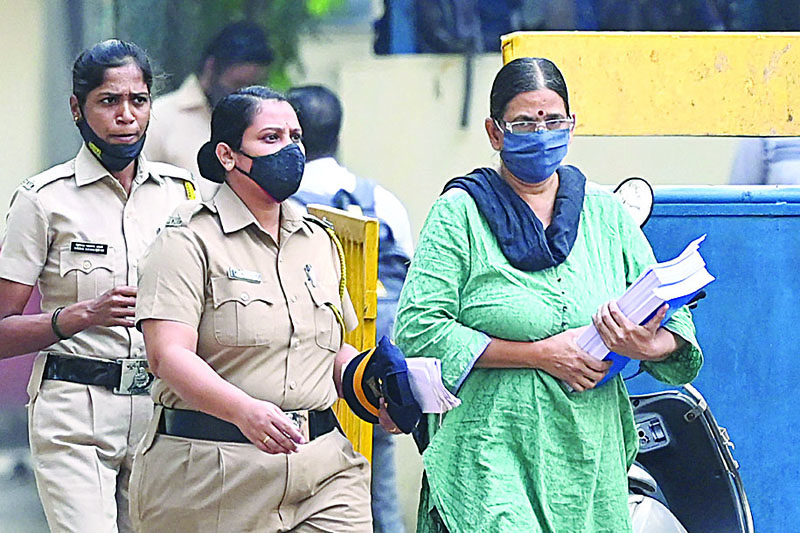MUMBAI: An activist lawyer detained for more than three years without trial was freed on bail in Mumbai yesterday, in the latest case to highlight the Indian government's use of contentious anti-terror laws. Sudha Bharadwaj, 60, was arrested in August 2018 on accusations of inciting violence between different Indian castes and claims she had links to Maoist militants.
A special court for India's National Investigation Agency (NIA) has set over a dozen bail conditions for her release, including banning her from talking to the press about the case. The court also directed her to stay in Mumbai and immediately inform it about her place of residence and contact numbers. Bharadwaj waved to reporters but gave no statement as she left the court. "We are really happy... we also hope that this case will die a natural death sooner than later because it's a case based on fraudulent, inadmissible evidence," said Smita Gupta, a friend of Bharadwaj's.
Sixteen activists and academics have been arrested in the same case, with one of them - Indian rights activist and Jesuit priest Stan Swamy - dying in pre-trial detention in July. The United Nations said it was deeply disturbed by the 84-year-old's death and had called for the group's release. Bharadwaj, like Swamy, was detained under the Unlawful Activities Prevention Act (UAPA), which allows people to be held without trial indefinitely.
Critics say the law - which makes it difficult for accused people to receive bail - has been used by the Indian Prime Minister Narendra Modi's government to silence dissent. India's top anti-terrorism investigation agency last month arrested a prominent human rights activist in Indian-administered Kashmir under the UAPA. The government said in February that almost 6,000 people had been arrested under the UAPA between 2016 and 2019, with 132 convicted. - AFP




